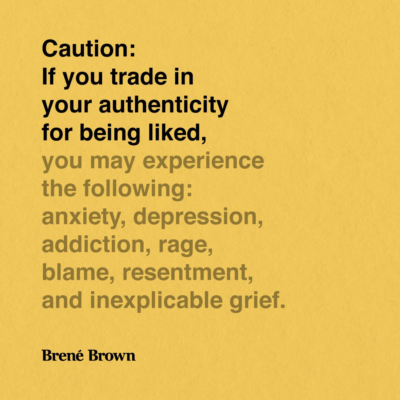
Human beings often have an underlying need to be liked by others including the people they work with. People will sometimes go to extra lengths to be accepted in an organisation and will often go out of their way and take on extra roles and responsibilities in order to prove themselves. I have certainly witnessed this over my 25 years of teaching and leading. I think leaders need to be extremely cautious when trying to be liked by those whom they are leading. Shame researcher Brené Brown challenges us to focus on being ‘authentic’ as opposed to being ‘liked’.
What does leading with true authenticity mean?
Some characteristics of an authentic leadership style may include:
- Being true to who you are without changing or compromising your personally held values and beliefs to ‘fit’ into a group or organisation.
- Keeping a continued focus on an organisation’s core vision, values and beliefs.
- Ensuing you are a role model – taking responsibility especially around choices and decisions made.
- Treating all employees with respect while adapting relationship skills to meet individual needs – avoid having ‘favourites’.
- Proactively addressing issues and challenges when they arise and applying a solution-focused approach to empower others.
- Demonstrating empathy and understanding towards others without compromising the purpose of the organisation.
- Never appearing to be better than anyone else.
Leading with authenticity will ensure people respect you for your core purpose and role in the organisation rather than your need to be wanted or liked. One guiding principle I often thought about when I was a leader in a school is I had permission to be friendly when leading, but I wasn’t employed to be people’s friends. There is a clear difference!

